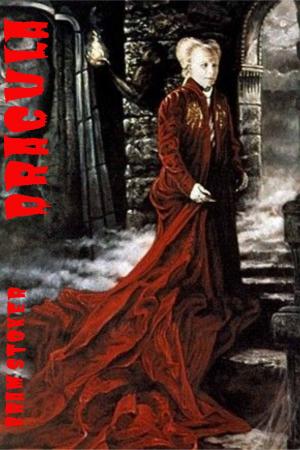| Author: | Luigi Bruno di Belmonte | ISBN: | 1230000215914 |
| Publisher: | Kobo | Publication: | January 31, 2014 |
| Imprint: | Language: | English |
| Author: | Luigi Bruno di Belmonte |
| ISBN: | 1230000215914 |
| Publisher: | Kobo |
| Publication: | January 31, 2014 |
| Imprint: | |
| Language: | English |
We are in the fifties in the aftermath of World War 2.The setting is that of MittelEurope following the trail of a certain aristocracy whose dreams had been consigned to the world’s memory but parts of it still lived on among those mountains and… onto these pages.
. The action moves swiftly. From the French Riviera on board of the sleekest schooner, to Sicily where the fateful encounter occurs, to the Alps of the Obersalzberg involved in a threesome unforgettable juncture, or in Paris at the Ritz or Chez Maxim’s, or at la Place de la Contrescarpe cavorting with Ernest Hemingway, or still in Berlin under the bombs of General Patton.
Imagine a woman that falls in love with a man that cannot see her. Imagine a man not born blind but becomes one in the blast of a land mine. Imagine a woman who cannot have children but must deliver one for dynastic reasons and conceives to having one through the unaware help of her blind lover and her fully aware lesbian friend. Sperm donors didn’t exist in those days and to a newborn there was but ne way to break into life….This is the bone of this story. We’re in the heart of Europe in the aftermath of World War Two, future is set to become past’s extreme contrary.
An extraordinary schooner lands in Palermo in need of repair. On board Baroness Margaux von Wuttembach cannot hide her disappointment. She had never been in Palermo and the hotel of her choice is completely deserted. Enthralled by the flowers she decides to have her breakfast in the garden. As she looks around equally fascinated by the city’s imperious monuments, she notices a man coming toward her: tall, black curly hair, dark shades, well dressed. Not used to that type of Mediterranean looks, she stared at him. A mighty dog, a Newfoundland perhaps, accompanies the man. With total casualness, they begin talking, in English… definitely something is in the air. The woman says to be Baroness Margaux von Wuttembach, waiting for her propeller to arrive from Germany. Directed to Greece she says to be. In introducing himself the man says to be Foudroyé Del Lago, half Italian and half English. Their brief encounter amidst the garden’s relentless bloom is cut short by a telephone call for the Baroness and by a waiter calling the man Prince. The woman salutes perplexed. Both make a point to seeing each other again, for dinner… that very evening… in an old villa right behind the hotel?
What if the woman finds out that the man is blind?
Through a series of intense encounters both at Foudroyé’s Villa del Lago and at the family‘s fishing cannery the flamboyant Baroness Wuttembach suddenly becomes enthralled by young blind Prince Del Lago. Their love making could not be more sensual and…romantic, specially to a woman that did not want to have rapports with men.
However, many are the questions impinging on their encounter, since its very beginning that is. Who was Baroness von Wuttembach? What was she going to do in Greece? Who is Ute Kolbach, a blonde woman she talks about ever more often? It was soon clear how Foudroyé Del Lago was confronted with the smooth splendor of a woman of the world easily overpowering a young man who in order to survive operated a radio station, a post to reach the blind as he himself was one having lost his corneas on a land mine. News about corneas transplants are becoming ever more frequent, Margaux invites him to her house in Paris, Foudroyé decides to take a chance. They leave together but to find the right pair of corneas requires time and both leave for Berchtesgaden’s where in the Wuttembach’s opulent chalet (windows same measures as nearby Hitler’s Bergdorf) the mystery of their relationship slowly unfolds. A silver plaque in Foudroyé’s bedroom reports a thought by Sigmund Freud “I’m becoming used to the idea of considering any sexual encounter as a process in which at least four people are involved. We shall discuss this at length.” Foudroyé’s fingertips are able to decode those lines. He is perplexed. But it all looked so casual in that house so much dripping with culture. What was happening to him? Where was he? Should he believe Margaux? What reason could she have besides that of loving him? He too discovers to be in love with Margaux.
The relationship soon changes into a threesome affair. It involves Ute, the blonde angel in love with Margaux since the time when the latter worked as a prostitute in the streets of Berlin, Margaux, herself homosexual but not completely, and Foudroyé who loves Margaux but could not see her beyond the sensitivity of his fingertips. Foudroyé goes along with what he considers a game to enrich their way of making love. However, who was the fourth person mentioned in that silver plaque so wittingly exposed in his bedroom? Stephan von Wuttembach, Margaux’s husband, the warmonger steel-Baron? No, no, all evidences seemed to exclude him. The conundrum focuses mainly on this interrogative. But it will be Greta Hilde Cunegonda to unveil the poignant question at the very end though, the very end of everything!
In reality, what could have been behind those saturnalia? Certainly not lust as the main thread seems to be love, love in its ultimate essence. In reality, Margaux could not have children, but in reason of her marriage to Germany’s most powerful industrialist, she must have one. In those days there were no sperm donors and there was but one way for a newborn to come across life. Foudroyé’s blindness suddenly played into her plan. Although she loves Foudroyé, she decides to use him in her scheme, that of having a child through the help of her completely aware lesbian friend and the unaware participation of… Foudroyé. That’s the reason behind the threesome performance carried out with the semblances of a love affair, it was only too real.
Finally Foudroyé’s dramatic search for his corneas is coming to due. His undergoes one the first transplant operations taking place in the world, it’s an astonishing success but the moment they take off his bandages and he looks for Margaux she is…gone.
The hunt for Margaux begins in earnest: not an easy task given he had never seen her nor he had any clue of the whereabouts of the great cottage in the Obersalzberg. But determined to find her he was.
Suddenly all Europe is inundated by the invitations in honor of Greta Hilde Cunegonda, presented to all as the new Wuttembach heir. All participants were asked to don the costumes of medieval. Uninvited but hidden inside an armor, Foudroyé allegedly arrives to see Margaux while fondling the baby all believe to be hers. It’s a very emotional moment in this novel indeed rich with moving moments. But the two never will get see each other.
The war in South Tirol is also an essential part of this narrative. Financed by Baron von Wuttembach, this conflict acts as quicklime keeping the string of the story together, a story always on the brink of something else. The birth of Greta Hilde Cunegonda von Wuttembach coincides with an attack by police in which Margaux and her husband die. Here is where the final part begins, twenty years on. The hero of this denouement is Greta Hilde Cunegonda, richissime and a musician herself; her personality is no second to any of the characters met all along. One evening, in reading a book casually taken from the racks of a supermarket, she discovers nothing less than she was not Margaux and Stephan Wuttembach’s daughter. “Who am I?” she asks completely befuddled while reading Meine Liebe Meine Liebe, a book recently published and hotly debated by the upper class the world over. As she progresses with her read, she finds herself immersed in the throes of details about her family completely unbeknownst to her. More than a brief mention in a synopsis should be devoted to Meine Liebe Meine Liebe, a story written by Ashleigh Hellikotter, Foudroyé’s old pal and Hemingway’s dearest friend who happened to have witnessed the whole affair since its start in Sicily. Meine Liebe Meine Liebe, a story in its own rights so titled after the way Margaux called Foudroyé, it’s a sort of a scaffold, a voice over from which one learns the secrets beyond the wings, indeed many. For reasons of clarity is presented in italics.
We are in the fifties in the aftermath of World War 2.The setting is that of MittelEurope following the trail of a certain aristocracy whose dreams had been consigned to the world’s memory but parts of it still lived on among those mountains and… onto these pages.
. The action moves swiftly. From the French Riviera on board of the sleekest schooner, to Sicily where the fateful encounter occurs, to the Alps of the Obersalzberg involved in a threesome unforgettable juncture, or in Paris at the Ritz or Chez Maxim’s, or at la Place de la Contrescarpe cavorting with Ernest Hemingway, or still in Berlin under the bombs of General Patton.
Imagine a woman that falls in love with a man that cannot see her. Imagine a man not born blind but becomes one in the blast of a land mine. Imagine a woman who cannot have children but must deliver one for dynastic reasons and conceives to having one through the unaware help of her blind lover and her fully aware lesbian friend. Sperm donors didn’t exist in those days and to a newborn there was but ne way to break into life….This is the bone of this story. We’re in the heart of Europe in the aftermath of World War Two, future is set to become past’s extreme contrary.
An extraordinary schooner lands in Palermo in need of repair. On board Baroness Margaux von Wuttembach cannot hide her disappointment. She had never been in Palermo and the hotel of her choice is completely deserted. Enthralled by the flowers she decides to have her breakfast in the garden. As she looks around equally fascinated by the city’s imperious monuments, she notices a man coming toward her: tall, black curly hair, dark shades, well dressed. Not used to that type of Mediterranean looks, she stared at him. A mighty dog, a Newfoundland perhaps, accompanies the man. With total casualness, they begin talking, in English… definitely something is in the air. The woman says to be Baroness Margaux von Wuttembach, waiting for her propeller to arrive from Germany. Directed to Greece she says to be. In introducing himself the man says to be Foudroyé Del Lago, half Italian and half English. Their brief encounter amidst the garden’s relentless bloom is cut short by a telephone call for the Baroness and by a waiter calling the man Prince. The woman salutes perplexed. Both make a point to seeing each other again, for dinner… that very evening… in an old villa right behind the hotel?
What if the woman finds out that the man is blind?
Through a series of intense encounters both at Foudroyé’s Villa del Lago and at the family‘s fishing cannery the flamboyant Baroness Wuttembach suddenly becomes enthralled by young blind Prince Del Lago. Their love making could not be more sensual and…romantic, specially to a woman that did not want to have rapports with men.
However, many are the questions impinging on their encounter, since its very beginning that is. Who was Baroness von Wuttembach? What was she going to do in Greece? Who is Ute Kolbach, a blonde woman she talks about ever more often? It was soon clear how Foudroyé Del Lago was confronted with the smooth splendor of a woman of the world easily overpowering a young man who in order to survive operated a radio station, a post to reach the blind as he himself was one having lost his corneas on a land mine. News about corneas transplants are becoming ever more frequent, Margaux invites him to her house in Paris, Foudroyé decides to take a chance. They leave together but to find the right pair of corneas requires time and both leave for Berchtesgaden’s where in the Wuttembach’s opulent chalet (windows same measures as nearby Hitler’s Bergdorf) the mystery of their relationship slowly unfolds. A silver plaque in Foudroyé’s bedroom reports a thought by Sigmund Freud “I’m becoming used to the idea of considering any sexual encounter as a process in which at least four people are involved. We shall discuss this at length.” Foudroyé’s fingertips are able to decode those lines. He is perplexed. But it all looked so casual in that house so much dripping with culture. What was happening to him? Where was he? Should he believe Margaux? What reason could she have besides that of loving him? He too discovers to be in love with Margaux.
The relationship soon changes into a threesome affair. It involves Ute, the blonde angel in love with Margaux since the time when the latter worked as a prostitute in the streets of Berlin, Margaux, herself homosexual but not completely, and Foudroyé who loves Margaux but could not see her beyond the sensitivity of his fingertips. Foudroyé goes along with what he considers a game to enrich their way of making love. However, who was the fourth person mentioned in that silver plaque so wittingly exposed in his bedroom? Stephan von Wuttembach, Margaux’s husband, the warmonger steel-Baron? No, no, all evidences seemed to exclude him. The conundrum focuses mainly on this interrogative. But it will be Greta Hilde Cunegonda to unveil the poignant question at the very end though, the very end of everything!
In reality, what could have been behind those saturnalia? Certainly not lust as the main thread seems to be love, love in its ultimate essence. In reality, Margaux could not have children, but in reason of her marriage to Germany’s most powerful industrialist, she must have one. In those days there were no sperm donors and there was but one way for a newborn to come across life. Foudroyé’s blindness suddenly played into her plan. Although she loves Foudroyé, she decides to use him in her scheme, that of having a child through the help of her completely aware lesbian friend and the unaware participation of… Foudroyé. That’s the reason behind the threesome performance carried out with the semblances of a love affair, it was only too real.
Finally Foudroyé’s dramatic search for his corneas is coming to due. His undergoes one the first transplant operations taking place in the world, it’s an astonishing success but the moment they take off his bandages and he looks for Margaux she is…gone.
The hunt for Margaux begins in earnest: not an easy task given he had never seen her nor he had any clue of the whereabouts of the great cottage in the Obersalzberg. But determined to find her he was.
Suddenly all Europe is inundated by the invitations in honor of Greta Hilde Cunegonda, presented to all as the new Wuttembach heir. All participants were asked to don the costumes of medieval. Uninvited but hidden inside an armor, Foudroyé allegedly arrives to see Margaux while fondling the baby all believe to be hers. It’s a very emotional moment in this novel indeed rich with moving moments. But the two never will get see each other.
The war in South Tirol is also an essential part of this narrative. Financed by Baron von Wuttembach, this conflict acts as quicklime keeping the string of the story together, a story always on the brink of something else. The birth of Greta Hilde Cunegonda von Wuttembach coincides with an attack by police in which Margaux and her husband die. Here is where the final part begins, twenty years on. The hero of this denouement is Greta Hilde Cunegonda, richissime and a musician herself; her personality is no second to any of the characters met all along. One evening, in reading a book casually taken from the racks of a supermarket, she discovers nothing less than she was not Margaux and Stephan Wuttembach’s daughter. “Who am I?” she asks completely befuddled while reading Meine Liebe Meine Liebe, a book recently published and hotly debated by the upper class the world over. As she progresses with her read, she finds herself immersed in the throes of details about her family completely unbeknownst to her. More than a brief mention in a synopsis should be devoted to Meine Liebe Meine Liebe, a story written by Ashleigh Hellikotter, Foudroyé’s old pal and Hemingway’s dearest friend who happened to have witnessed the whole affair since its start in Sicily. Meine Liebe Meine Liebe, a story in its own rights so titled after the way Margaux called Foudroyé, it’s a sort of a scaffold, a voice over from which one learns the secrets beyond the wings, indeed many. For reasons of clarity is presented in italics.















